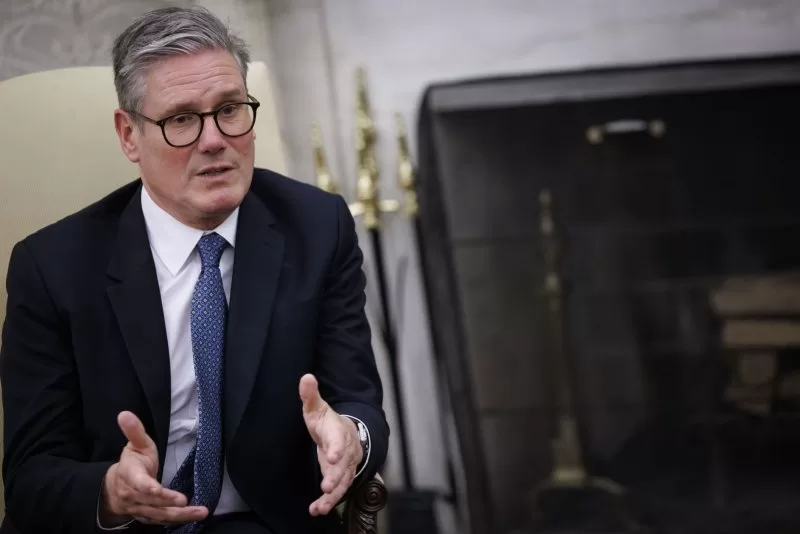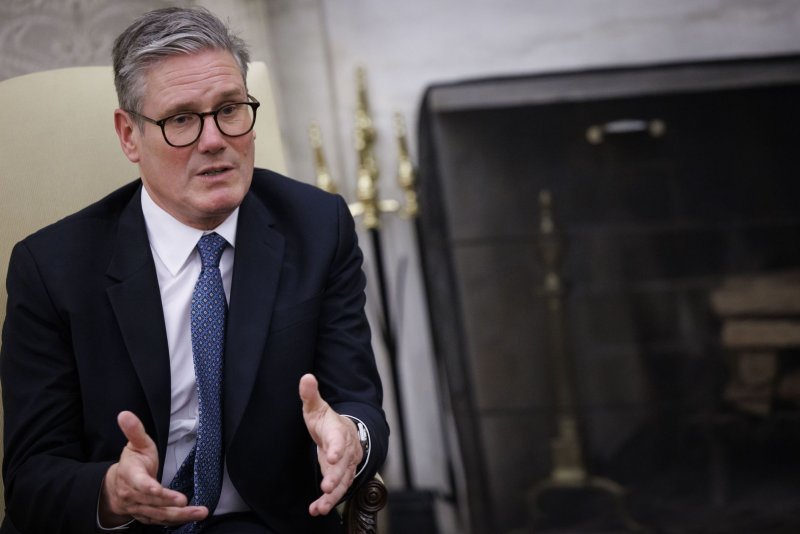U.K. Prime Minister Keir Starmer convened a meeting of high-level ministers Saturday to address civil unrest as anti-immigration protests triggered by the stabbing deaths of three young girls and misinformation on social media sometimes triggered violence in communities throughout the United Kingdom. Photo by Ting Shen/UPI |
License PhotoAug. 3 (UPI) — Anti-immigration and anti-fascist protesters occasionally clashed at relatively small demonstrations in parts of Britain on Saturday.
The anti-immigration protesters began demonstrating following the stabbing spree that killed three young girls and wounded eight others participating in a Taylor Swift-themed yoga class Monday in Southport, England.
The accused is a 17-year-old named Axel Muganwa Rudakubana, who police say was born in Cardiff, Wales.
Many social media posts incorrectly claimed the teen is among recent migrants who illegally entered Britain, which has triggered sometimes violent protests.
“Pockets of disorder” have resulted in locations like Hull, Liverpool and Manchester where police and protesters sometimes clashed with police.
Prime Minister Keir Starmer convened a meeting of senior ministers Saturday afternoon, including the deputy prime minister, home secretary, justice secretary and the policing minister, to discuss the unrest.
The police have the ministers’ “full support to take action against extremists on our streets who are attacking police officers, disrupting local businesses and attempting to sow hate by intimidating communities,” Starmer said.
Starmer also said there’s a difference between the “right of freedom of expression and the violent disorder we have seen” and “there is no excuse for violence of any kind.”
The protests generally drew about 300 or fewer people, some of whom carried signs demanding an end to refugees arriving via boats from the European mainland and generally opposing the British government’s immigration policies.
Many local protests were peaceful and ended quickly, but some resulted in participants throwing objects at local mosques and sometimes clashes between anti-immigrant protesters and Antifa counter-protesters.
When the anti-immigration protesters and Antifa counter-protesters clashed in Liverpool and other cities, police officers often were injured while trying to control the violence. Several arrests have been made.
Many protests have ended, but some are continuing into the evening.

